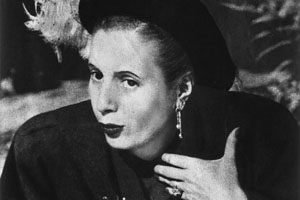Born in Valdivia on July 20th, 1769, he was the son of Felix Henriquez and Rosa Gonzalez.
At the age of 14, his father sent him to Peru to continue his studies. In this city, he was enrolled in the convent belonging to the order of San Camilo de Lelis or de Buena Muerte (Good Death). He was ordained a priest in 1790, moving to Quito (Ecuador).
He returned to Chile at the end of 1810, immediately becoming a part of the emancipation movement that was just beginning.
In 1811, he wrote one of his most important works, La Proclama de Quirino Lemachez (The Proclamation of Quirino Lemachez), where he made a call to the citizens to vote for people that were capable of fighting for ideas of independence during the elections held for installing a National Congress.
After the arrival of the printing pres to Chile (1812), friar Camilo Henriquez was named editor of the Aurora de Chile, the first newspaper in circulation of the country. In this newspaper, he transmitted his thoughts and ideology, which defended the right of the people and described the political situation going on at the time.
However, his work was criticized by the very same revolutionary sector, causing that, in August of that same year, Jose Miguel Carrera’s government decided to establish control over the newspaper and named a commission – made up by Juan Egaña, Francisco Antonio Perez, Pero Vivar and Manuel de Salas – to put together a project to regulate the press.
But Henriquez refused to publish this decree, and instead published a text from an English author that defended the same ideas he did.
The following year, he collaborated in a new newspaper that replaced the Aurora, the Monitor Araucano.
In 1811, he was under deputy for Puchacay and for the first National Congress. Later, he was elected Senator between 1812 and 1814. During that period he drafted several projects, standouts among them are the Constitutional Rules of 1812 and a project concerning protection of the indigenous people.
In 1822, he was deputy for Valdivia, and the following year he was under deputy for Valparaiso and Chiloe. Between 1824 and 1825 he was deputy for Copiapo.







 Muere Evita
Muere Evita